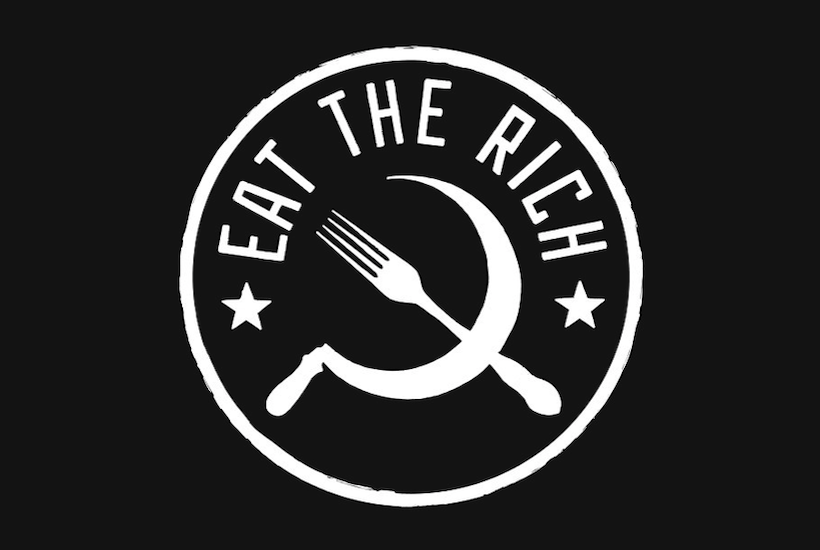Interesting musings from the economist Maarten Boudry on the topic of inequality, in a post titled “Is extreme wealth a greater evil than extreme poverty?”:
Imagine you could wave a magic wand to make one thing disappear from the world: extreme poverty or extreme wealth. Which would you choose? Let’s assume, for the sake of argument, that we won’t be liquidating anyone: we’ll just hand out and take away money, respectively. According to Oxfam’s annual report on inequality released last week, there are currently 2,153 billionaires in the world. And if we adopt the definition of poverty used by the World Bank (living on less than $1.90 per day), more than 600 million people qualify as (extremely) poor. So what will it be: a world without billionaires or one without beggars?
I hope you didn’t hesitate for even a second: of course we would want to conjure away extreme poverty. This is exactly what the United Nations has resolved to achieve by 2030 with its Millennium Goals, albeit not with a magic wand, but with the proven methods of economic development, wealth redistribution and foreign aid (or any other methods that work). Despite the tremendous progress that we have witnessed in the past three decades, 8.3 per cent of the global population is still living in absolute destitution.
A world without poverty by 2030 is not a pipe dream, but it’s not a guaranteed success either. At this point, we’re behind schedule. Ramping up our efforts and ending poverty once and for all should be the world’s top priority today. And yet, these days I find myself encountering more and more people who, judging by their rhetoric and their allocation of moral outrage, seem to consider extreme wealth the greater of the two evils, and who would even make some sacrifices in the fight against poverty if only they could get rid of billionaires.
Unlike many if not most of my readers, Boudry is a man of the left who doesn’t particularly like billionaires (he thinks that they should all follow the Gates’ and Buffet’s example and keep voluntarily donating large chunks of their fortune to charitable causes), and many of his readers have reacted to his challenge with a simple “why not both?” But Boudry is also sensible enough to stand against the ever-present sub-current of the progressive thought that seems to be motivated by envy and hatred, and desires to tear down more than to build up, rather than necessarily the love of a fellow human being; as if everything will naturally sort itself out into an equitable order once you eat the rich (see the Bolsheviks and pretty much any other revolutionary movement).
People will always have different views on the role and the morality of wealth and inequality. For me, however, such debates are pointless because Boudry’s dilemma is essentially a false one to start with. Deep down, it sees the economic system as essentially static and simple: some (many) people are poor because some (few) people are rich. It follows from the fact that there is a fixed amount of wealth, often illustrated as a proverbial pie, or as P J O’Rourke once wrote, the idea that if I have two slices of pizza you’ll only be left with the cardboard box to eat. If you kill the wealthy then you can slice the pie into more or less equal pieces and all will be well.
But will it? As I’ve shown elsewhere before if you expropriated all the wealth owned by American billionaires you could run the Federal government for about eight months. If you expropriated the hated “one per cent” you could finance Federal spending for five years. Then you presumably keep going down the food chain. As Margaret Thatcher so famously said, the problem with socialism is that sooner or later you run out of other people’s money.
The reality is that however mindbogglingly large the fortunes and the disparities in wealth, there are relatively few very wealthy and there are a hell of a lot of people who are not.
In 2018 there were 2200 billionaires around the world with a combined wealth of $9.1 trillion. Let’s again say we killed them all or at least expropriated all of their wealth – then we would be able to give a one-off gift of around $2,500 to the bottom two-thirds of all adults in the world (upwards of 3.5 billion people over 18). The accurate income statistics across the world are notoriously difficult to come by, but a very rough estimate would be that such a gift would represent an average yearly income across this massive cohort (being an average, needless to say, it would be more than that for the bottom billion who live on less than $2 per day). Would it help? Of course. Would it in any meaningful way eliminate poverty? Only if somehow invested (in a business, education, etc.) and not spent on consumption. The big problem is that the countries where poorer people concentrate don’t actually provide a good investment environment, whether because of the violence, instability and corruption or the laws and regulations of the land that limit people’s opportunities.
“Ending poverty by ending big wealth” does not even work in theory, much less in practice, as the history of the past century shows. The world is more complicated than even the less murderous left allows for. Having grown up in a society without billionaires I hope the new generations don’t have to learn both the basic economics and the reality of human nature the hard way.
Arthur Chrenkoff blogs at The Daily Chrenk, where an earlier version of this piece also appears.
Illustration: Twiter.
Got something to add? Join the discussion and comment below.
Got something to add? Join the discussion and comment below.
Get 10 issues for just $10
Subscribe to The Spectator Australia today for the next 10 magazine issues, plus full online access, for just $10.


























Comments
Don't miss out
Join the conversation with other Spectator Australia readers. Subscribe to leave a comment.
SUBSCRIBEAlready a subscriber? Log in